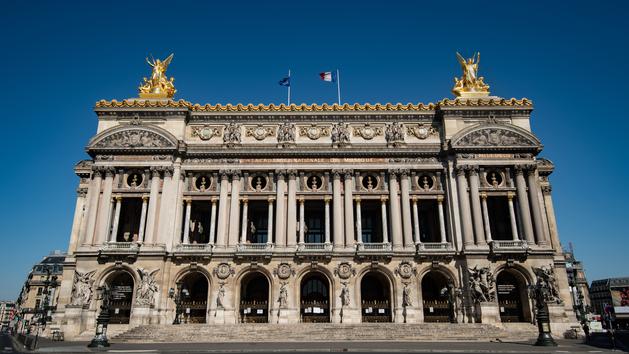This is a first at the Paris Opera.
The three-hundred-year-old institution has launched an unprecedented mission on the racial question, at a time when employees are calling for the abolition of practices such as “blackface” and for promoting diversity.
Director General Alexander Neef has entrusted this mission to Constance Rivière, Secretary General of the Defender of Rights, and to historian Pap Ndiaye, who must deliver their conclusions by December 15.
An initiative that echoes a manifesto entitled "From the racial question to the Paris Opera", calling for this issue to be brought out "from the silence that surrounds it" and signed by nearly 400 employees (out of 1,800).
In this text, revealed at the end of September by the Sceneweb site, the signatories say they have been encouraged by the
“many awakenings around the world”
, like the “Black Lives Matter” movement in the United States.
In June, five black and mixed-race dancers from the Opera Ballet posted photos on Instagram, with the hashtag #blackdancersmatter.
Read also: At the Paris Opera, the dancers facing the Covid-19
Reflection on this sensitive subject was initiated even before it was approached by the collective behind the manifesto, underlines to AFP Mr. Neef, who took office a month ago.
The meeting of the two approaches
"confirmed the fact that there was a need to talk about it"
, he said.
"If you force this debate as a director, people will be like
'why are we doing this'
.
"
Hailing the
“courage”
of the collective, Mr. Neef assured that it was not a
“need to follow a trendy subject”
:
“if you want to remain part of society, you cannot stay still and refuse to move ”
.
The manifesto calls for the
“official and definitive”
abolition
of “blackface” in ballets and operas.
The signatories also demand access for Métis and black artists to
"products corresponding to their skin tone"
, in particular tights and pointy slippers, as already exists in Anglo-Saxon countries.
If you want to remain part of society, you cannot stand still and refuse to evolve.
Alexander Neef, Director General of the Paris Opera.
At the Opera, AFP was told that
"the tights purchased will soon be more nuanced"
;
as for the points made in the workshops of the Opera, they
"have for years been dyed according to the color of the skin"
.
The complaints also relate to the use, still persistent orally, of the word
“nègre”
and its variations in historical names, such as “Le carré des negresses” (evoking a space in the Palais Garnier), however officially renamed “ Square of the caryatids ”.
There is also “the dance of the niggers” - a painting in the ballet “La Bayadère” (resumed in December) which had been renamed “the children's dance” by Benjamin Millepied, ex-director of the Ballet.
The manifesto also wants that the comments relating to ordinary racism can be reported, specifying moreover that
"artists from diversity"
are still
"relatively few"
within the house, which has a few Asian dancers.
"A new era"
In his mission letter, Mr. Neef also asked the two experts to reflect on the notion of
"white ballet, archetype of classical ballet (...) requiring a homogeneous corps de ballet"
.
When he was director, Benjamin Millepied said he had heard it said
"that you don't put a colored person in a corps de ballet because it's a distraction"
.
Whether there is an anti-racist code of conduct or whether we are discussing the change of names is not censorship, we are in a new era.
Françoise Vergès.
The “blackface” has been largely abandoned in Anglo-Saxon countries.
In 2019, Misty Copeland, first African-American “principal dancer” of the American Ballet Theater, was indignant at the blackface in a production at the Bolshoi, which had rejected
“these absurd statements”
.
To read also: “These children really want to dance”: the little rats back at the Paris Opera
The question of cultural clichés in 19th century operas and ballets is increasingly raised.
"This discussion within the Opera, considered a stronghold of tradition, is very positive,"
Françoise Vergès, president of the association "Décoloniser les arts", who has collected testimonies from dancers of the 'Opera.
"Whether there is an anti-racist code of conduct or that we discuss the change of names is not censorship, we are in a new era"
, says the one whose association is campaigning to register
"racial harassment"
in law.

